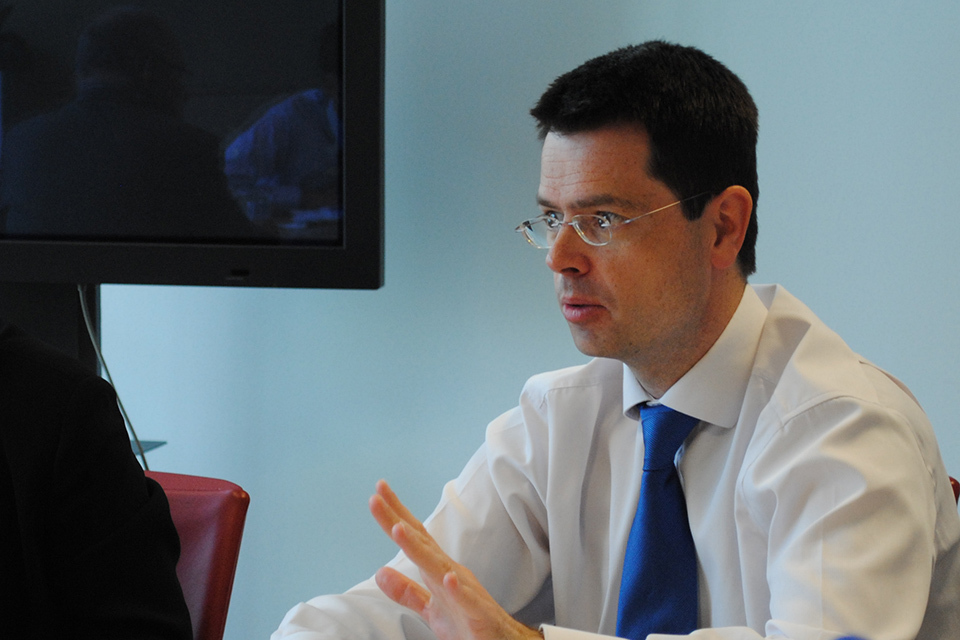New campaign urges people to be 'Cyber Streetwise'
A new campaign to change the way people protect themselves from falling victim to cyber criminals has been launched by the government.

Cyber security
The ‘Cyber Streetwise’ campaign aims to change the way people view online safety and provide the public and businesses with the skills and knowledge they need to take control of their cyber security. The campaign includes a new easy-to-use website and online videos.
With more than 11 million internet-enabled devices received as gifts during the Christmas period, Cyber Streetwise will help in the fight against online criminals. People are encouraged to protect themselves and their families online by visiting the website for tips and advice.
The new website offers a range of interactive resources, tailoring an individual’s visit to provide clear advice on the essentials for enjoying a safe experience online.
Security Minister James Brokenshire said:
The internet has radically changed the way we work and socialise. It has created a wealth of opportunities, but with these opportunities there are also threats. As a government we are taking the fight to cyber criminals wherever they are in the world.
However, by taking a few simple steps while online the public can keep cyber criminals out and their information safe. Cyber Streetwise is an innovative new campaign that will provide everyone with the knowledge and confidence to make simple and effective changes to stay safe online.

Security Minister - James Brokenshire
National Cyber Security Programme
The launch of the campaign is part of the government’s National Cyber Security Programme and comes at a time when an increasing number of people use the web on laptops, tablets and smartphones. Findings from the government’s most recent National Cyber Security Consumer Tracker suggest more than half the population are not taking simple actions to protect themselves online.
While 94% of people believe it is their personal responsibility to ensure a safe internet experience, the research highlights:
- only 44% always install internet security software on new equipment
- only 37% download updates and patches for personal computers when prompted – falling even further to a fifth (21%) for smartphones and mobile devices
- less than a third (30%) habitually use complex passwords to protect online accounts
- 57% do not always check websites are secure before making a purchase
The Cyber Streetwise campaign underlines that safety precautions taken in the real world have similar relevance in the virtual world. Research shows that shoppers don’t adopt the same behaviours when shopping online as contrasted with shopping on the High Street. A person wouldn’t walk around with their bag open or wallet on show, yet when shopping online due to the speed of technology, people can be open to unnecessary risk if they aren’t careful when using their credit card.
There are five actions people can take in order to protect themselves and others from cyber crime. The key behaviours the campaign is focussing on changing are:
- using strong, memorable passwords
- installing anti-virus software on new devices
- checking privacy settings on social media
- shopping safely online – always ensuring to check online retail sites are secure
- downloading software and application patches when prompted
The research shows our biggest concerns when it comes to online safety are identity theft (48%) and losing money (52%). People report having lost from £1 up to £10,000+ as a result of having their credit card details stolen and used to buy goods/services in their name. The total fraud loss in the UK amongst adult individuals is £4 billion (source AFI).
Almost a third (32%) of those who admit to not installing security software on internet devices blame a lack of understanding, while around a fifth (18%) say they did not realise the risk.
The Cyber Streetwise campaign, with initial funding allocated from the government’s National Cyber Security Programme, has been joined by a number of private sector partners who are providing support and investment, including Sophos, Facebook, RBS Group, and Financial Fraud Action UK.